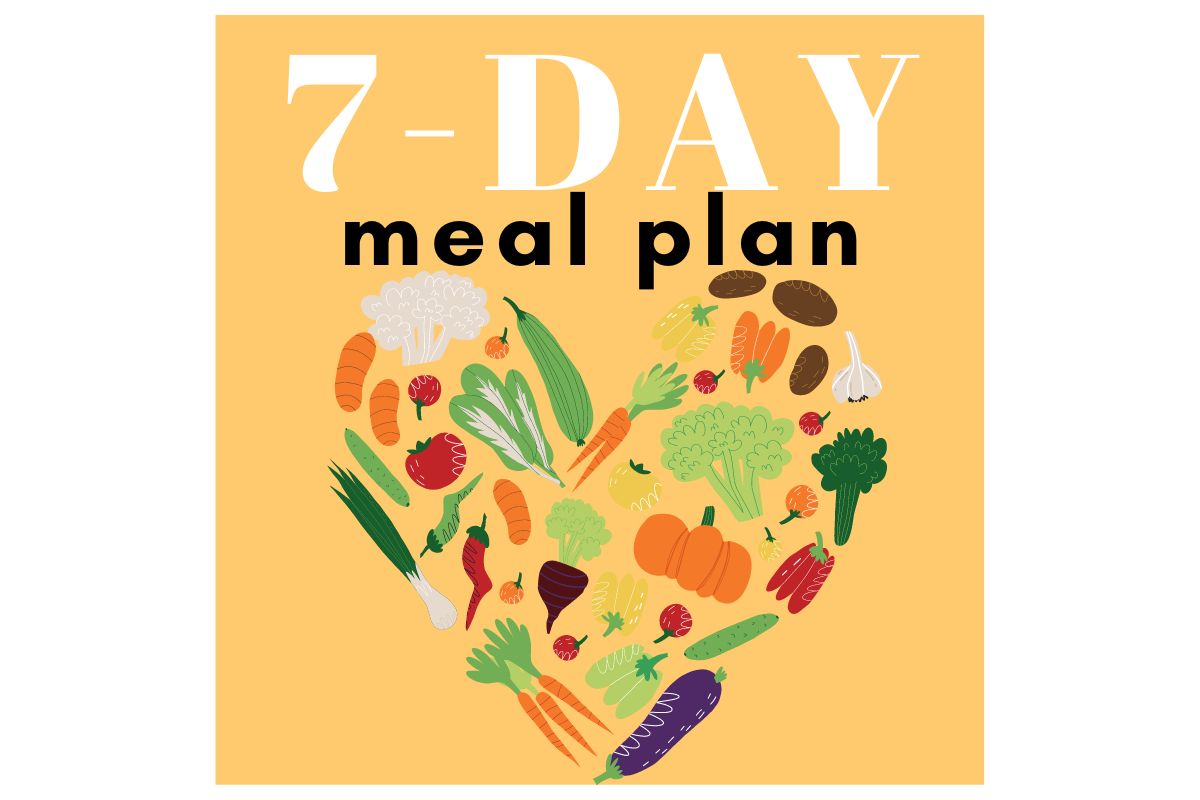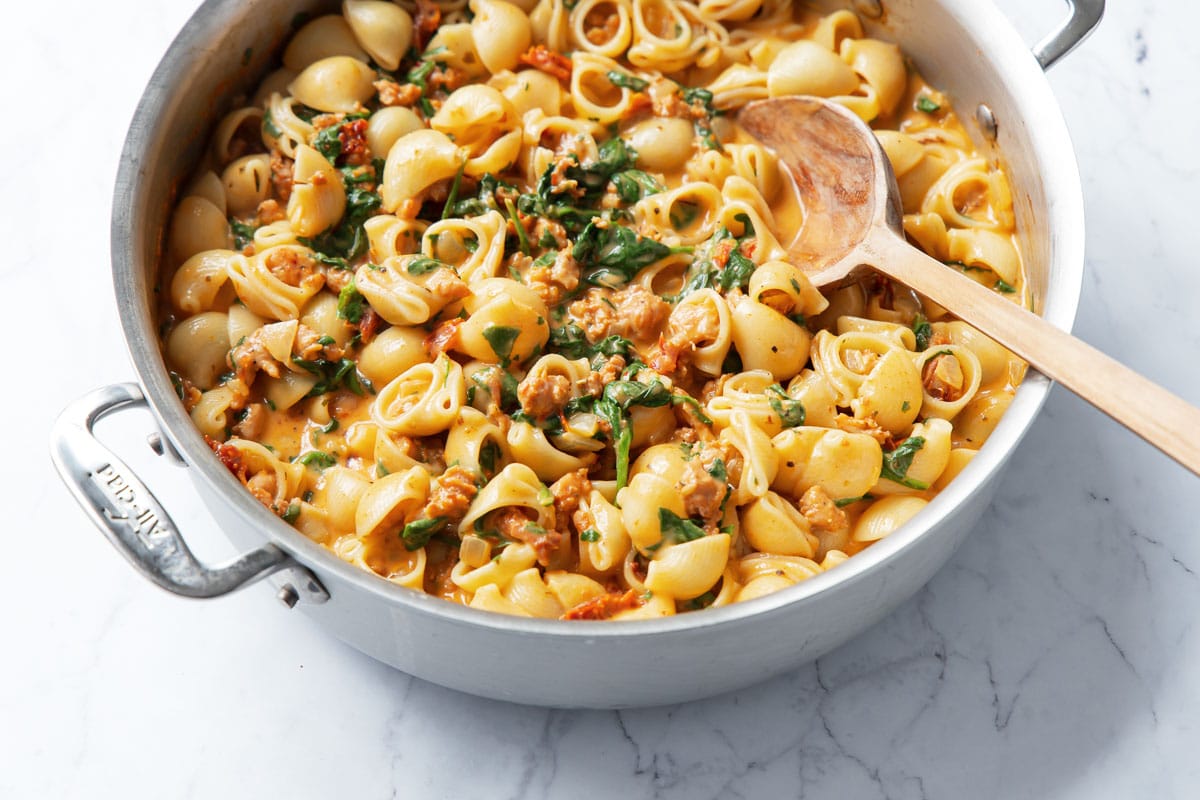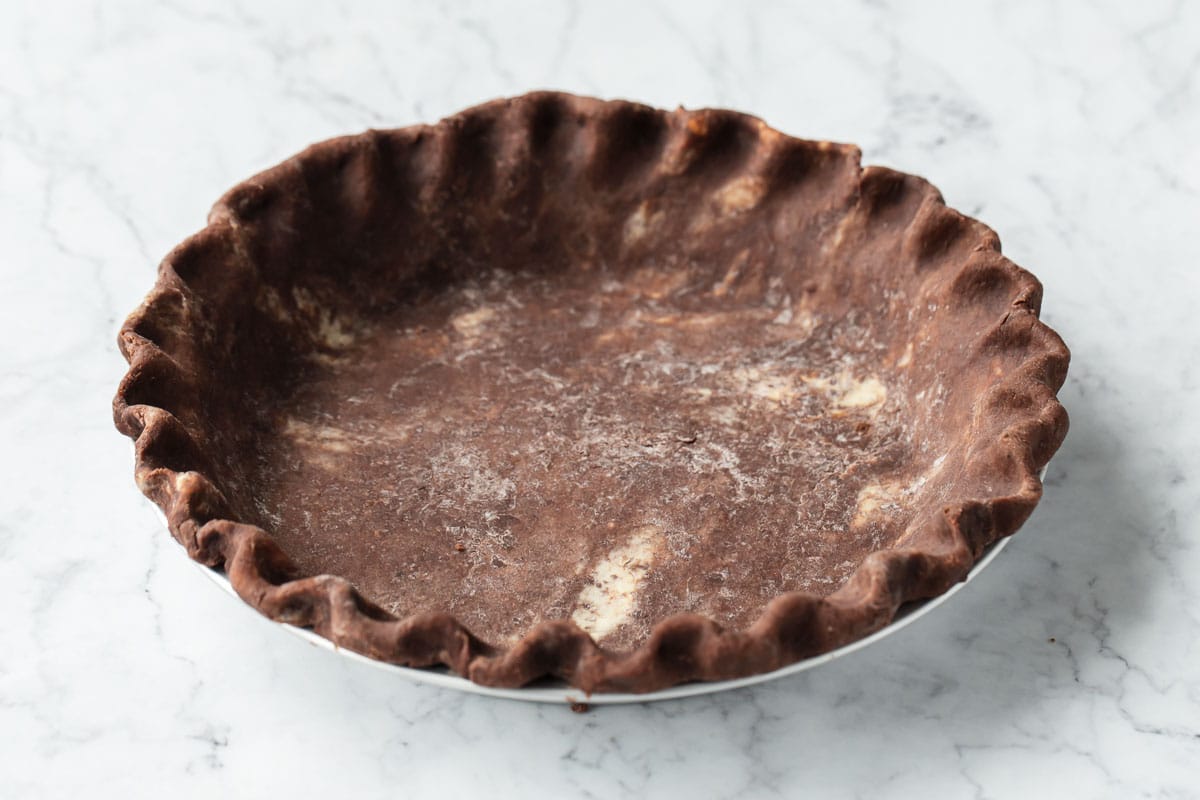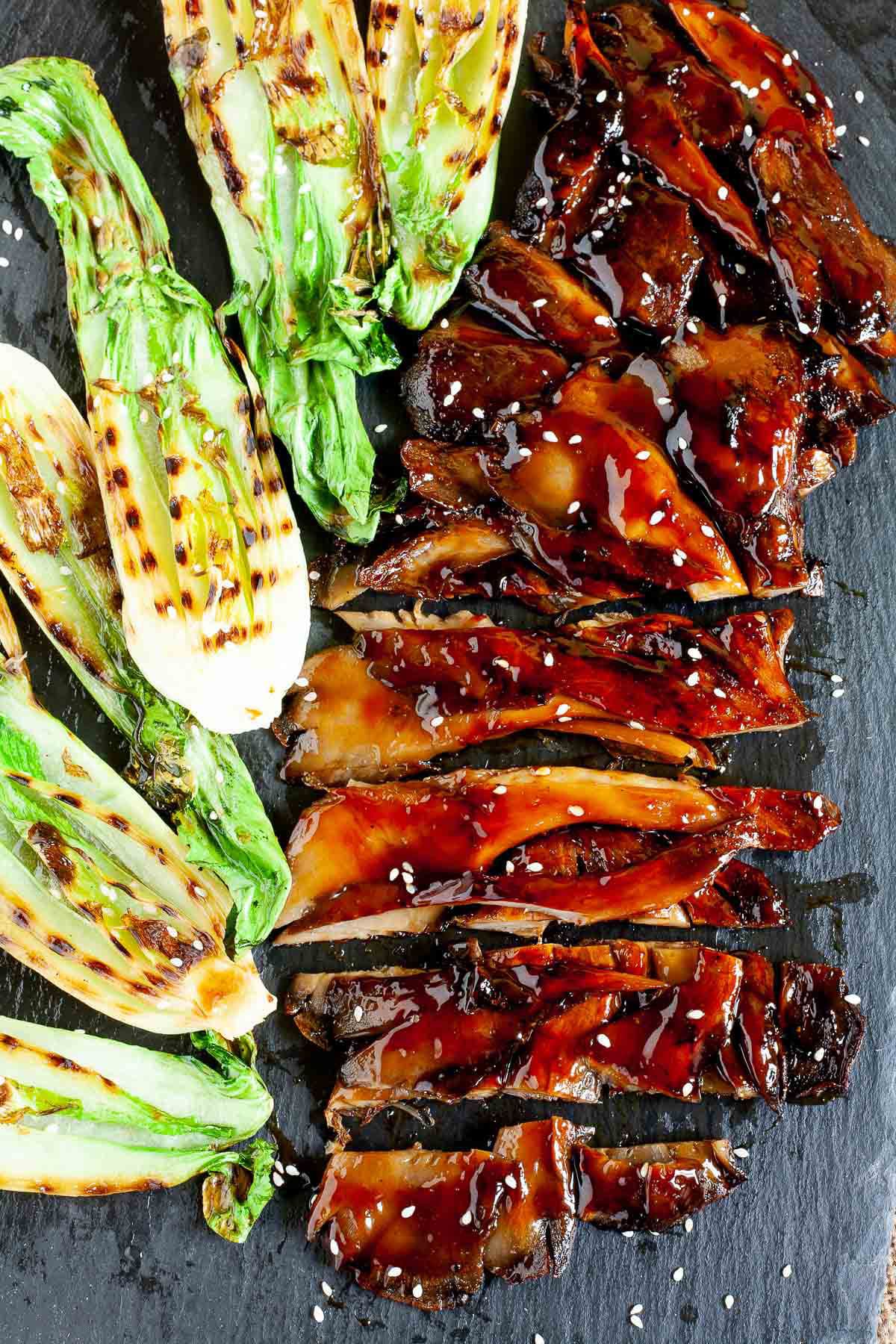How to Prepare Veggies for Spring Rolls in 4 Steps
The key to exceptional spring rolls lies in julienning vegetables into thin strips approximately 2-3 inches long and ⅛ inch thick. The matchstick-sized pieces makes rolling easier without any danger to break the wrapper. In short, washing, peeling, and...
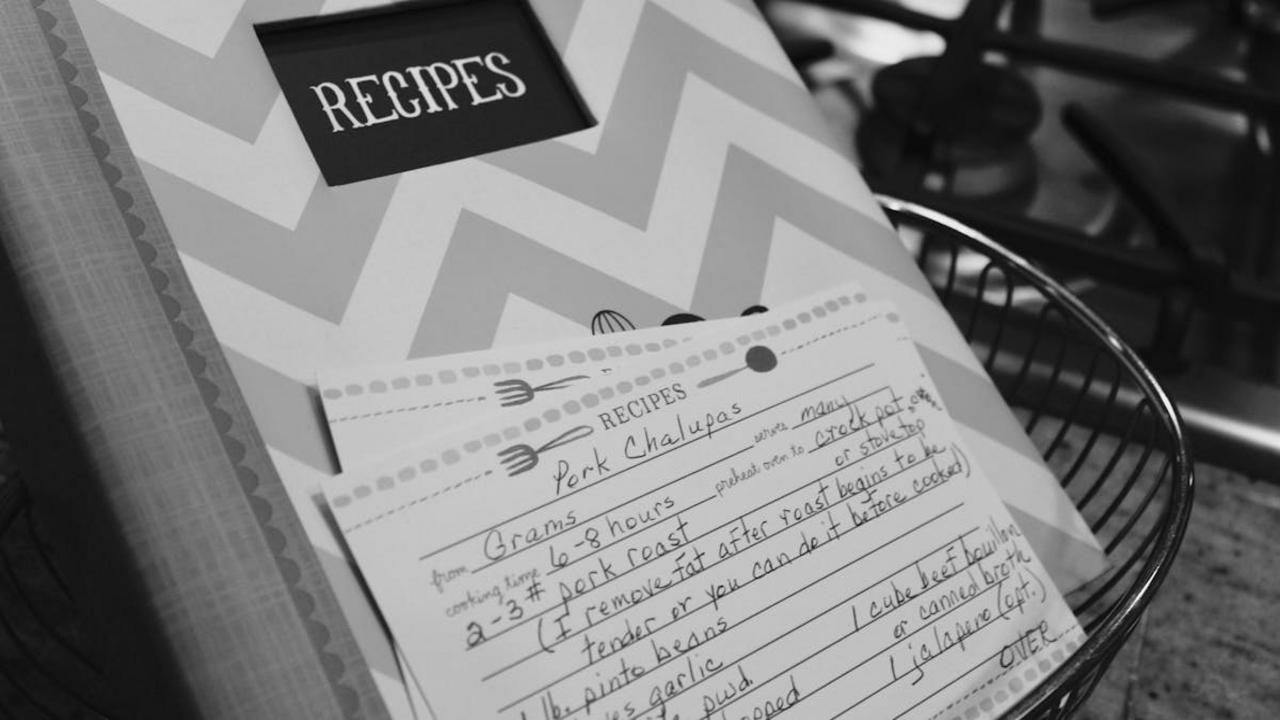
By Nandor Barta on 04/04/2025 - May contain affiliate links. Please read our disclosure.
The key to exceptional spring rolls lies in julienning vegetables into thin strips approximately 2-3 inches long and ⅛ inch thick. The matchstick-sized pieces makes rolling easier without any danger to break the wrapper.
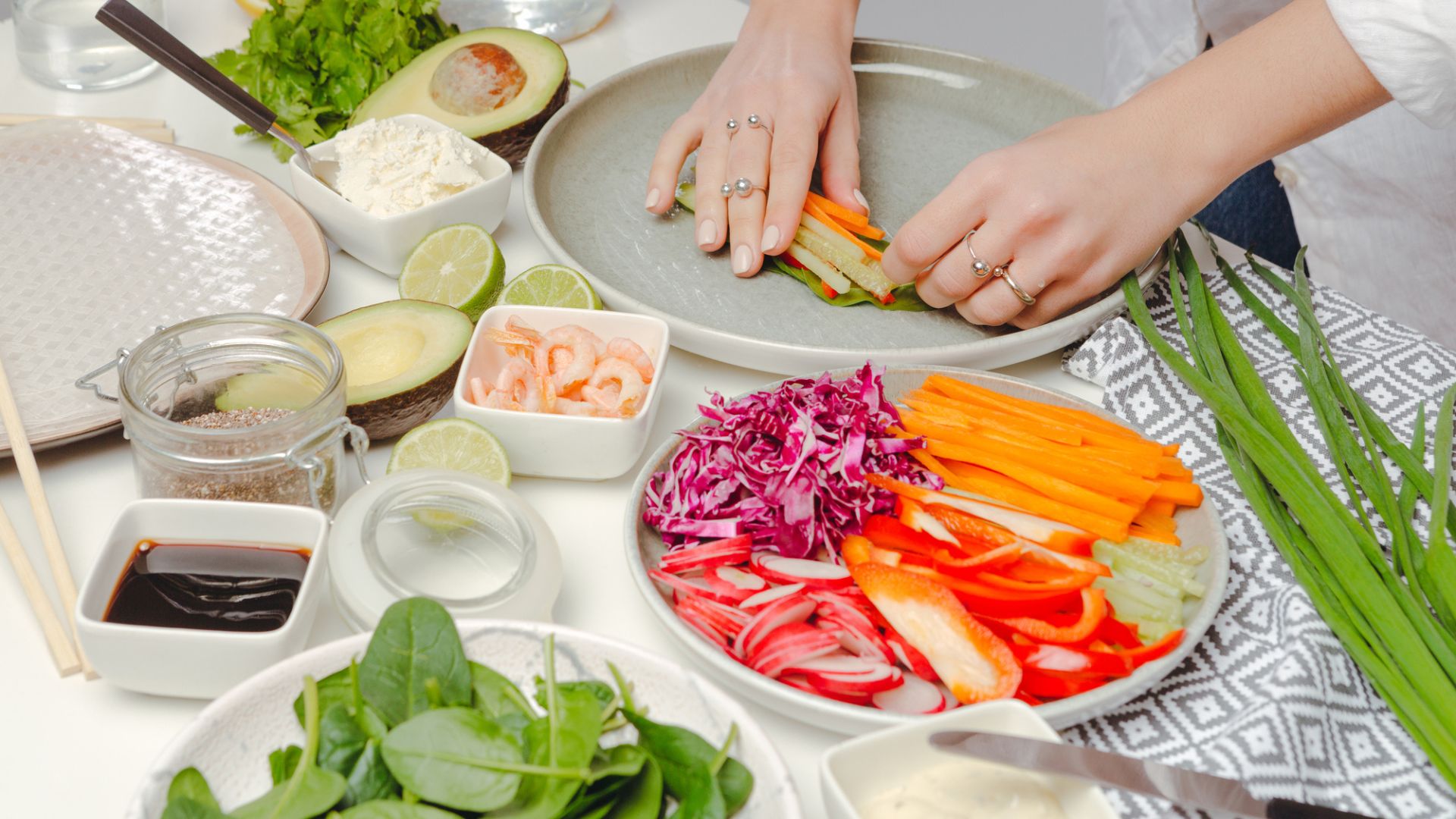 Photo credit: Depositphotos.
Photo credit: Depositphotos.In short, washing, peeling, and cutting are all you need to do for most vegetables.
Jump to:Best Vegetables for Spring RollsStep 1 – CleaningStep 2 – PeelingStep 3 – SoakingStep 4 – Cutting / JulienneKeep them raw or stir fry them?When to Blanch Vegetables?When to Marinate VegetablesHow to Keep Veggies Fresh Before FillingMore articles about spring rollsBest Vegetables for Spring Rolls
Talking about best veggies, the most authentic Chinese spring roll contains napa cabbage, carrots, bean sprouts or bamboo shorts, all thinly sliced.
However, I recommend mixing it up and adding julienned cucumber, bell peppers or leafy greens. The latter makes Vietnamese spring rolls especially delicious.
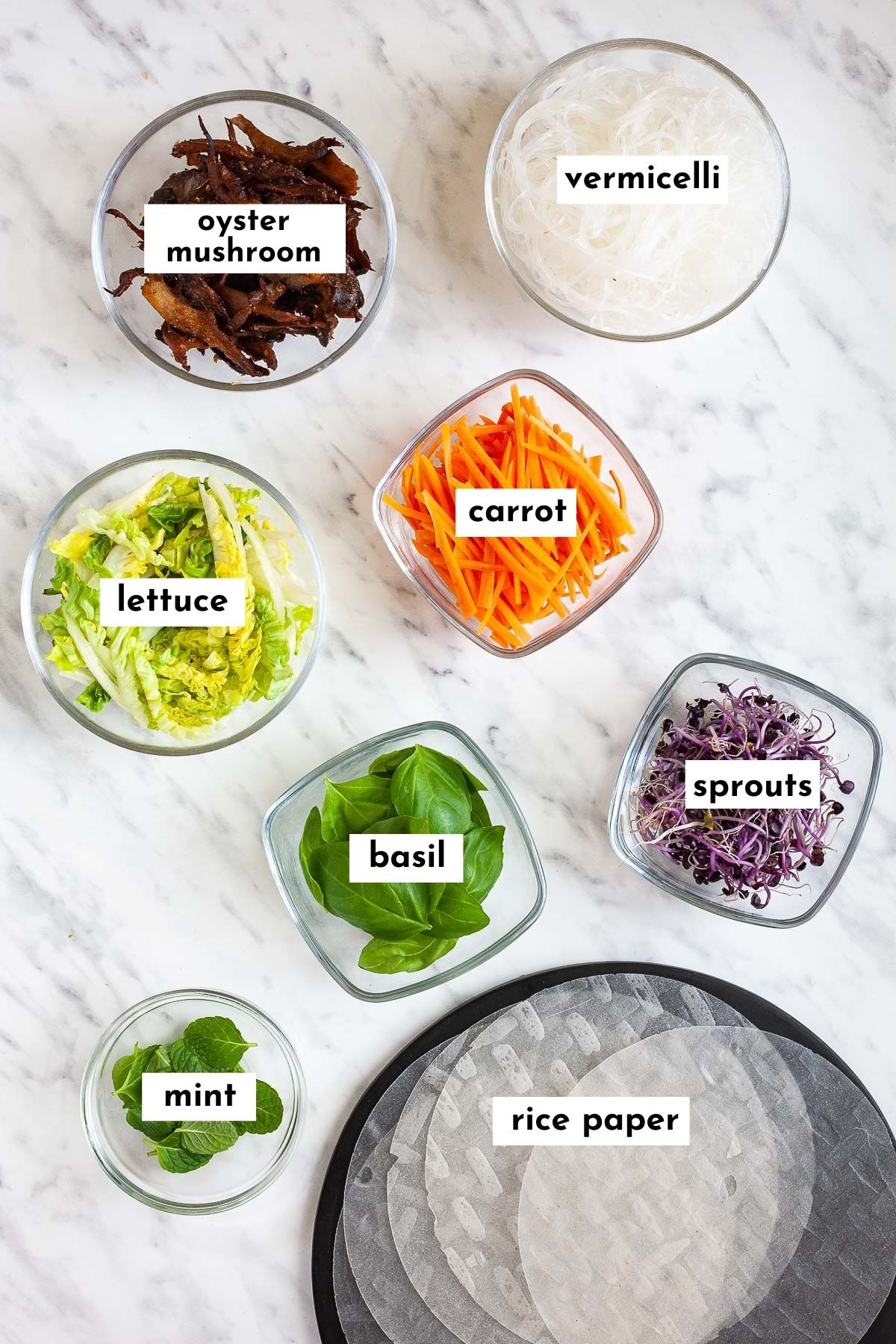 Ingredients of my Vietnamese summer rolls – Photo credit: My Pure Plants.
Ingredients of my Vietnamese summer rolls – Photo credit: My Pure Plants.Step 1 – Cleaning
I rinse carrots, daikons, bell peppers and cucumbers under running water and pat them dry with clean kitchen towels.
I also rinse the dried mushrooms under cold water to remove any surface dust or debris.
However, I do not wash napa cabbage. I just take off the outer leaves until I get to the clean ones.
Leafy greens like lettuce and herbs need extra attention. I separate each leaf before washing to remove hidden dirt. I use a salad spinner or pat them dry with a kitchen towel.
Step 2 – Peeling
I peel carrots, daikons and cucumbers and wash them again to remove any remaining soil.
Bell peppers require removing the seeds and the inner membranes only.
For bean sprouts, I trim off the roots.
With lettuce and cabbage, I remove the thick center rib before proceed further.
Step 3 – Soaking
I place the dried mushrooms in a bowl and cover them with warm water (not boiling). Let them soak for 20 to 30 minutes until they become soft and pliable.
After I remove the mushrooms from the water and gently squeeze out excess liquid and pat them dry.
Step 4 – Cutting / Julienne
I prefer to julienne all vegetables into thin strips about 2-3 inches long and ⅛ inch thick. This size makes rolling easier and ensures each bite contains a perfect mix of ingredients.
A sharp knife helps create clean cuts, preventing vegetables from getting crushed or torn. I also love using a mandolin, so the carrot ribbons are paper thin.
I julienne carrots, daikons, bamboo shoots, cabbages, bell peppers, lettuce, leafy greens, herbs and mushrooms.
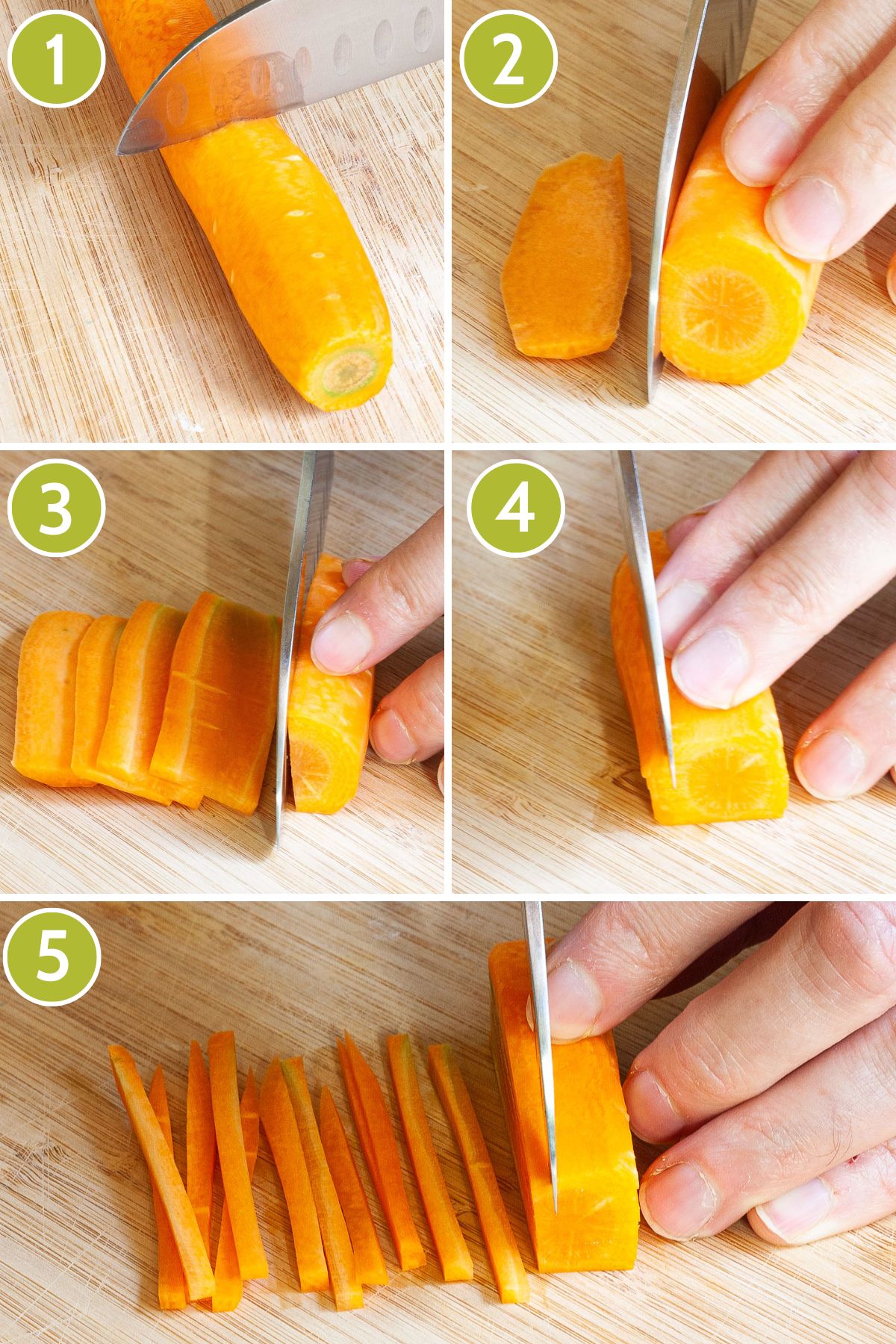 6 steps on how to julienne carrots – Photo credit: My Pure Plants.
6 steps on how to julienne carrots – Photo credit: My Pure Plants.Keep them raw or stir fry them?
There are 7 types of Asian spring rolls. So to answer this questions, you need to decide whether you want Chinese or Vietnamese spring rolls.
Chinese spring rolls are usually deep-fried or pan-fried, with fillings that are pre-cooked. Which means you take all julienne vegetables and stir-fry them on high heat in a wok or frying pan with a bit of salt, black pepper and soy sauce.
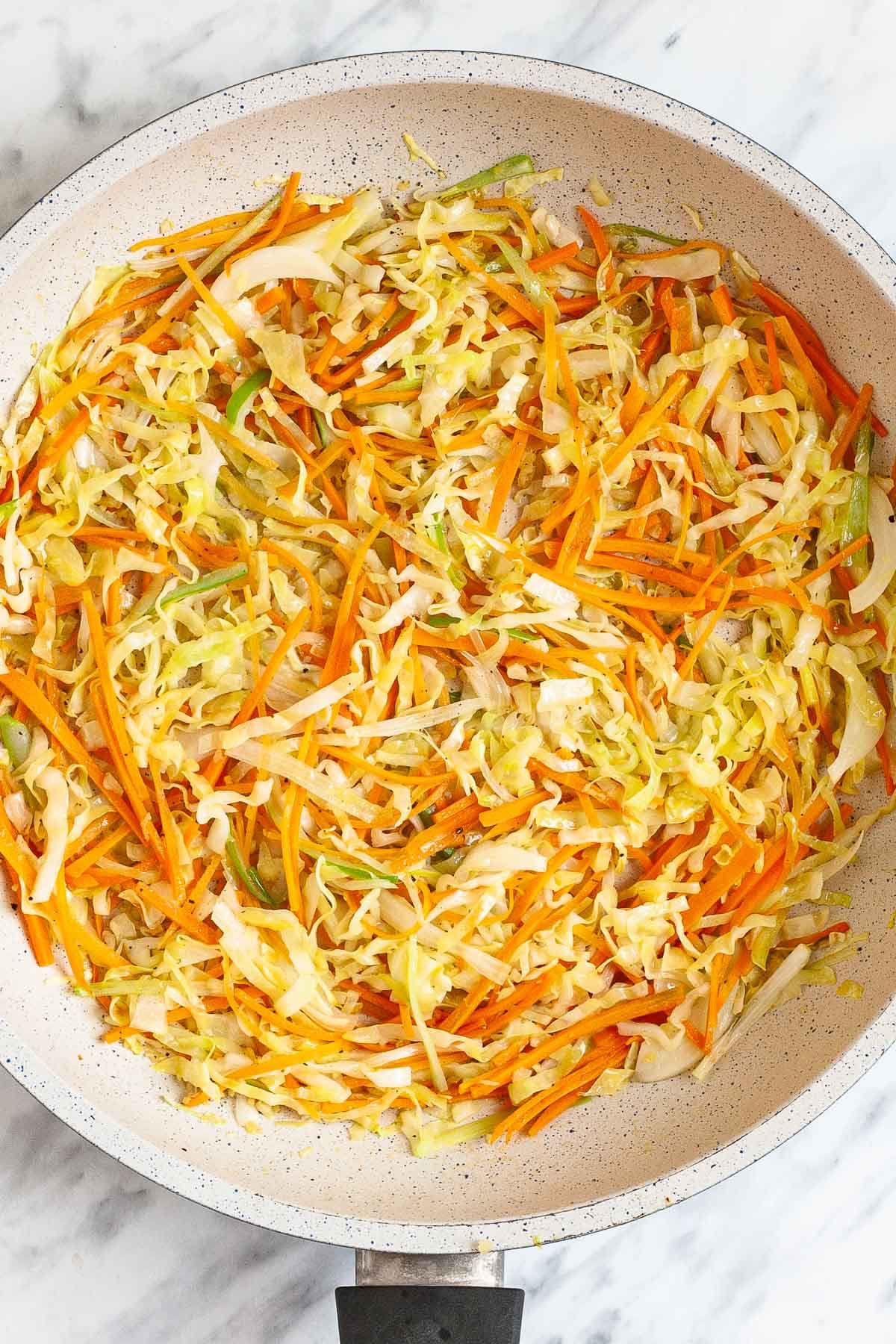 Stir frying julienned vegetables for spring rolls – Photo credit: My Pure Plants.
Stir frying julienned vegetables for spring rolls – Photo credit: My Pure Plants.Vietnamese summer rolls, on the other hand, are fresh and uncooked. They’re wrapped in delicate rice paper wrappers and filled with raw ingredients.
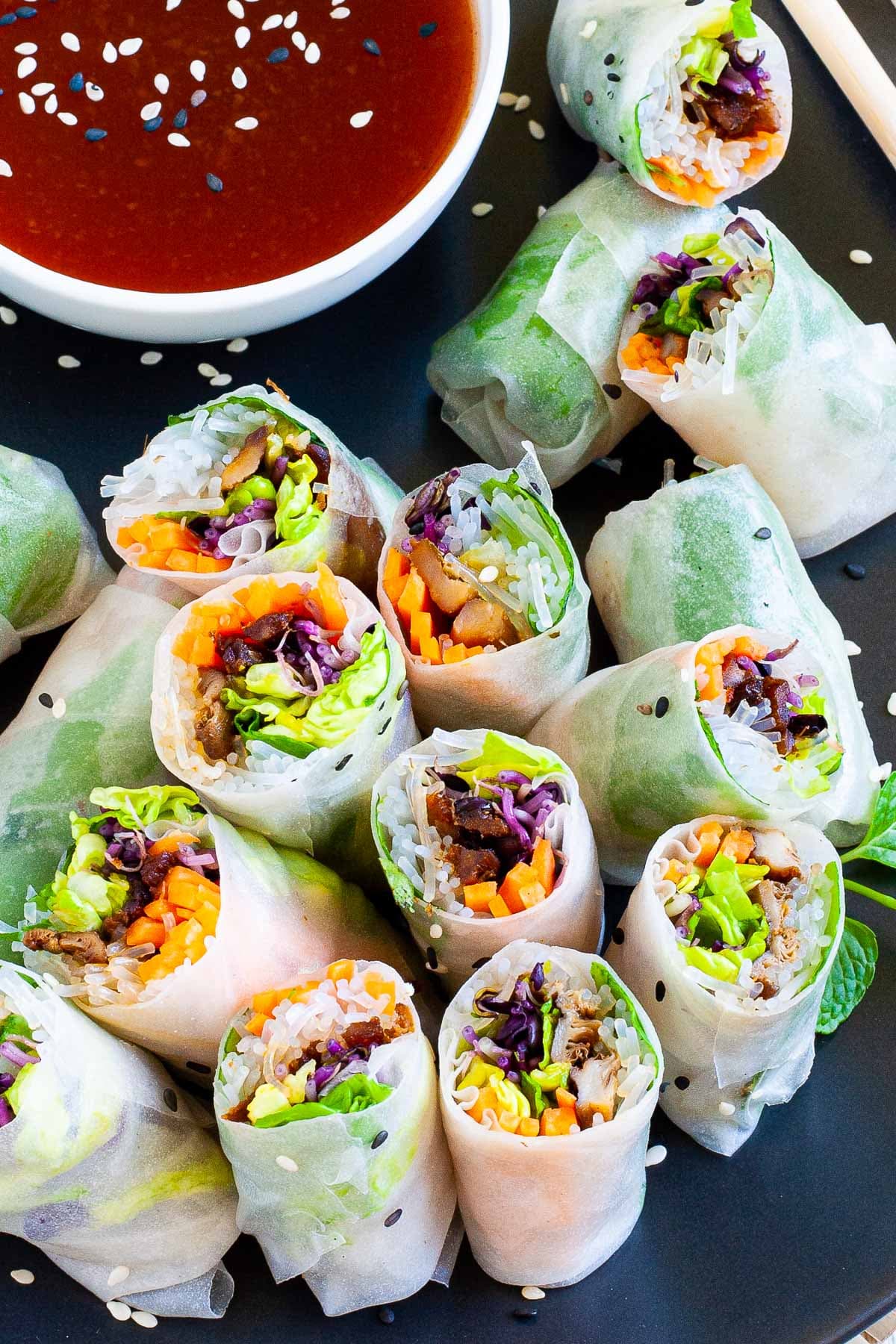 Vietnamese summer rolls with fresh vegetables – Photo credit: My Pure Plants.
Vietnamese summer rolls with fresh vegetables – Photo credit: My Pure Plants.When to Blanch Vegetables?
If you are prepare Vietnamese spring rolls and want to add hard vegetables like sweet potato, broccoli or green beans, they you must. While they are not typical vegetables in spring rolls, nobody says they cannot be used.
I blanch these vegetables quickly in boiling water, followed by an ice bath to maintain their crunch and color. This technique makes these harder vegetables suitable for fresh spring rolls. It only takes 30-60 seconds.
If you are preparing Chinese spring rolls, you do not need to blanch them, since you will stir-fry them along with all other fillings.
 Blanched broccoli in ice bath – Photo credit: Depositphotos.
Blanched broccoli in ice bath – Photo credit: Depositphotos.When to Marinate Vegetables
Again this comes down to your creativity. I prefer marinating oyster mushrooms and then frying them or making them crispy in the oven. They are also the easiest mushrooms to prepare.
They are a great addition to spring rolls especially if you want a meatless option without pork or shrimp. I love these vegan egg rolls with flavorful oyster mushrooms.
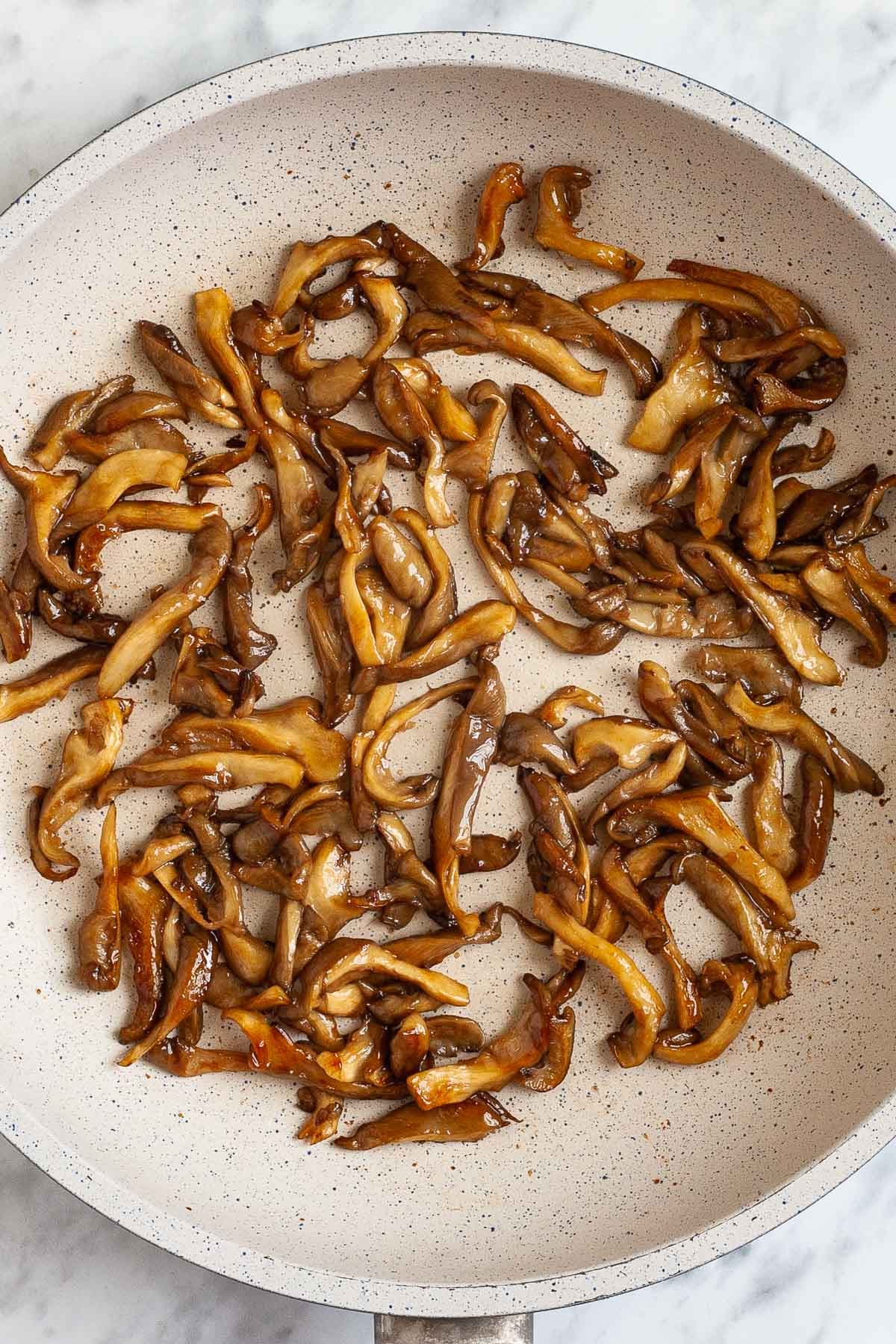 Stir-fried oyster mushrooms I used for vegan egg rolls – Photo credit: My Pure Plants.
Stir-fried oyster mushrooms I used for vegan egg rolls – Photo credit: My Pure Plants.How to Keep Veggies Fresh Before Filling
I store prepped raw vegetables either in ice-cold water or cover them with saran wrap. Either way I put them in the refrigerator. This works perfectly for up to 4 hours before assembly.
Lettuce and herbs need special care. I wrap them in slightly damp paper towels and keep them in a sealed container in the fridge.
I never store them too long before making spring rolls, since they can dry out easily.
More articles about spring rolls
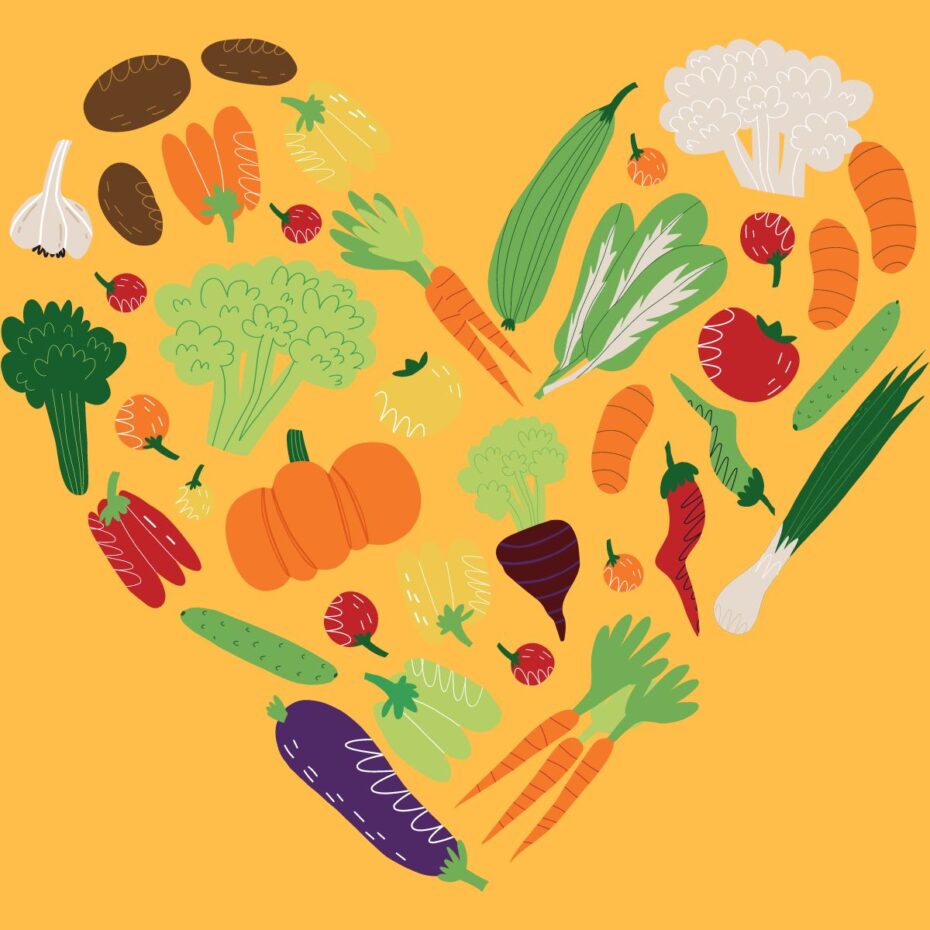
Reader Interactions
This site uses Akismet to reduce spam. Learn how your comment data is processed.

 Tfoso
Tfoso 